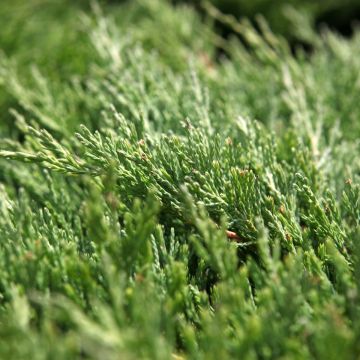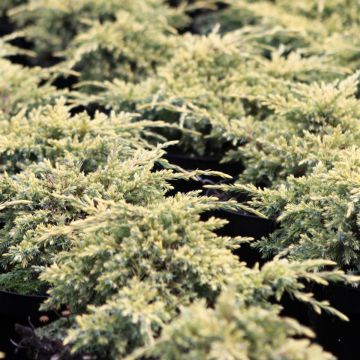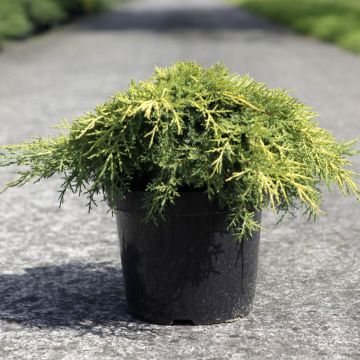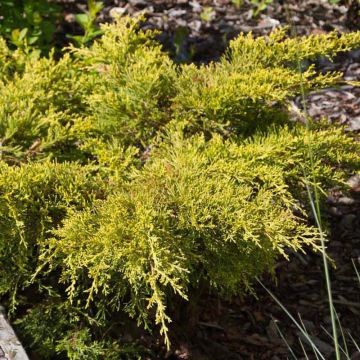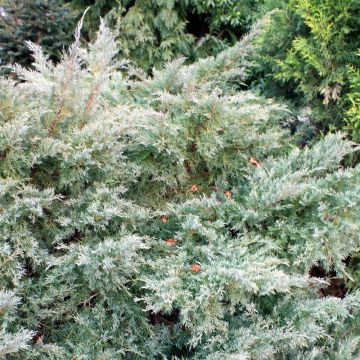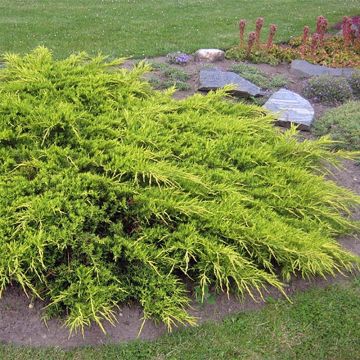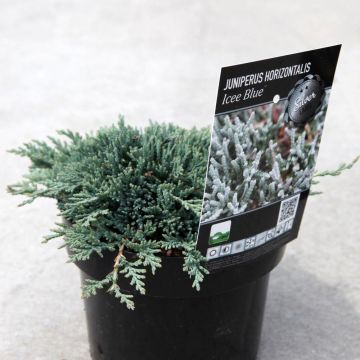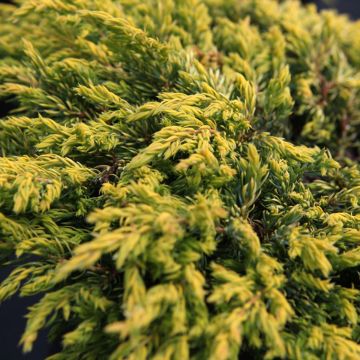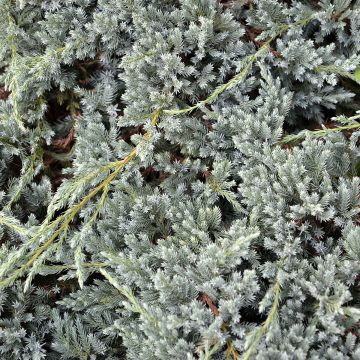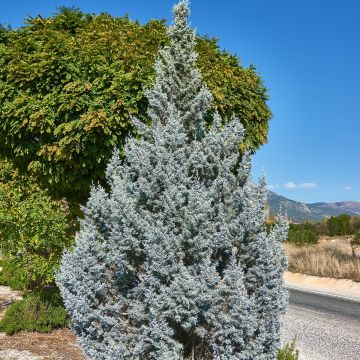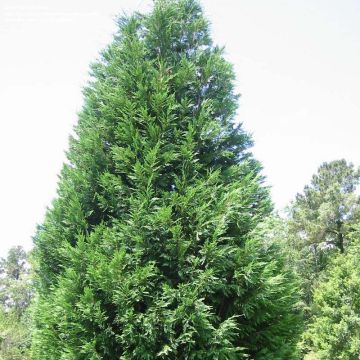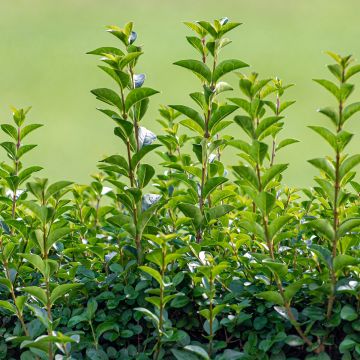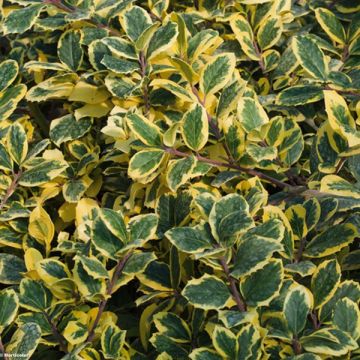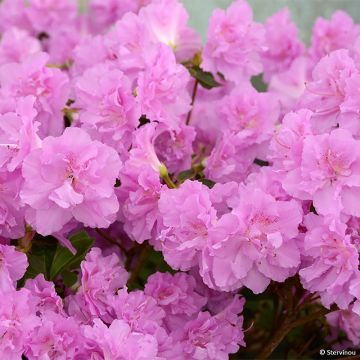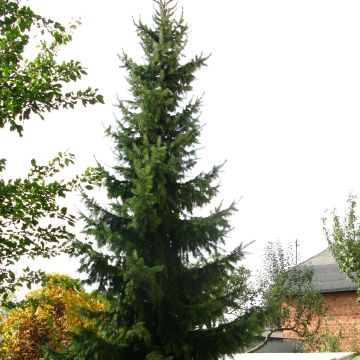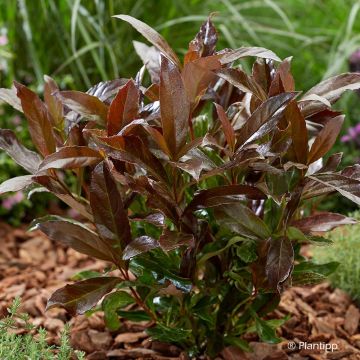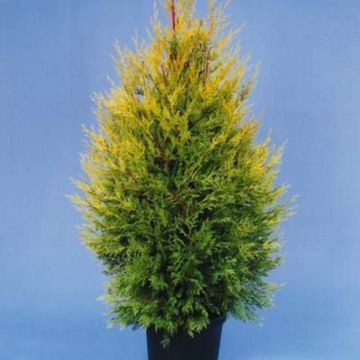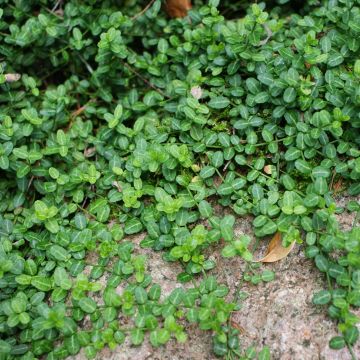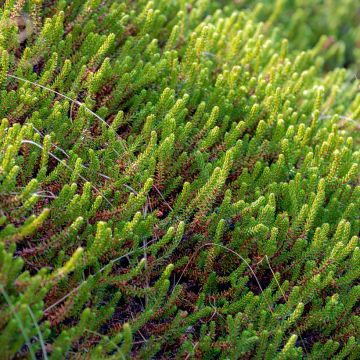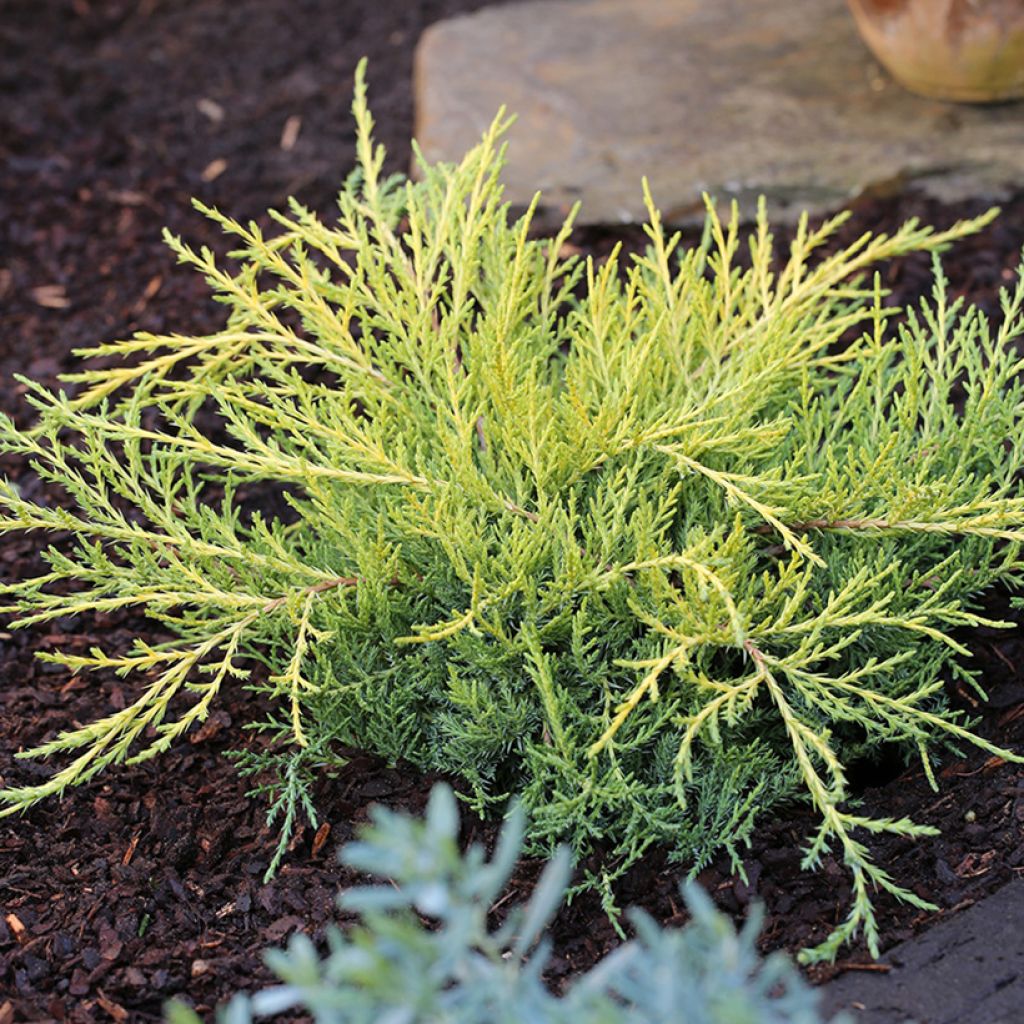

Juniperus pfitzeriana Golden Saucer
Juniperus pfitzeriana Golden Saucer
Juniperus x pfitzeriana Golden Saucer
Pfitzer Juniper, Chinese juniper
This item cannot be shipped to the selected country
Delivery charge from €5.90
More information
Schedule delivery date,
and select date in basket
This plant carries a 24 months recovery warranty
More information
We guarantee the quality of our plants for a full growing cycle, and will replace at our expense any plant that fails to recover under normal climatic and planting conditions.
From €5.90 for pickup delivery and €6.90 for home delivery
Express home delivery from €8.90.
Does this plant fit my garden?
Set up your Plantfit profile →
Description
Juniperus x media 'Golden Saucer', is also marketed under the names of Juniperus chinensis or Juniperus x pfitzeriana 'Golden Saucer'. It is an interesting hybrid juniper due to its moderate size, its golden foliage and its ability to form beautiful groundcover which is attractive all year round. With its bright foliage even in winter, this variety is superb in a large rockery, a city garden, or at the corner of a large planting bed. It lends itself well to pruning and to the art of bonsai. Juniperus x media are extraordinary conifers, vigorous, and low maintenance with an almost unmatched beauty.
Juniperus x media 'Golden Saucer', is part of a group of quite old hybrids, mainly derived from Juniperus chinensis, the Chinese juniper. It's a very hardy and very ornamental variety belonging, like its parents, to the family of cypress. Juniper 'Golden Saucer' forms a beautiful shrub after 10 years with a dense, open, relaxed habit, measuring about 90 cm (35.4 in) in height with a span of 1.5m (4 ft 11 in). Eventually, after many years left unpruned, it can reach a height of 3.5m (11 ft 6 in) and a width of about 6 m (19 ft 8 in). As it copes well with pruning, it is quite easy to limit its development when it matures. This conifer grows slowly when it is a young plant, and faster as it gets older. Its foliage consists of small scale-like, very tight leaves of a yellow-green. They give off a smell that some find unpleasant when rubbed. The young shoots are golden, they tend to green a little with age. Junipers have a shallow root system that makes them fragile in the face of strong winds and difficult to associate with perennials.
Juniper 'Golden Saucer' is a hardy and bright conifer that is popular in the garden for its ease of cultivation, its superb habit and its bright foliage. It is perfect everywhere. Its adult dimensions should be taken into account when planting it as a specimen, on a slope, in a large rockery, or even planted in a group of 3 in a large shrub bed, mixed with conifers with different habits and leaves. The geometric qualities of the conifers naturally work well in a contemporary garden, which is designed according to shapes, silhouettes and textures. These plants provide the garden with good, long term structure. They associate well with mahonias, or with shaggy grasses. They can also be associated with undemanding shade-loving perennials such as periwinkles or Euphorbia amygdaloides Purpurea for example. The best results are achieved by playing with volume and colour.
Report an error about the product description
Juniperus pfitzeriana Golden Saucer in pictures
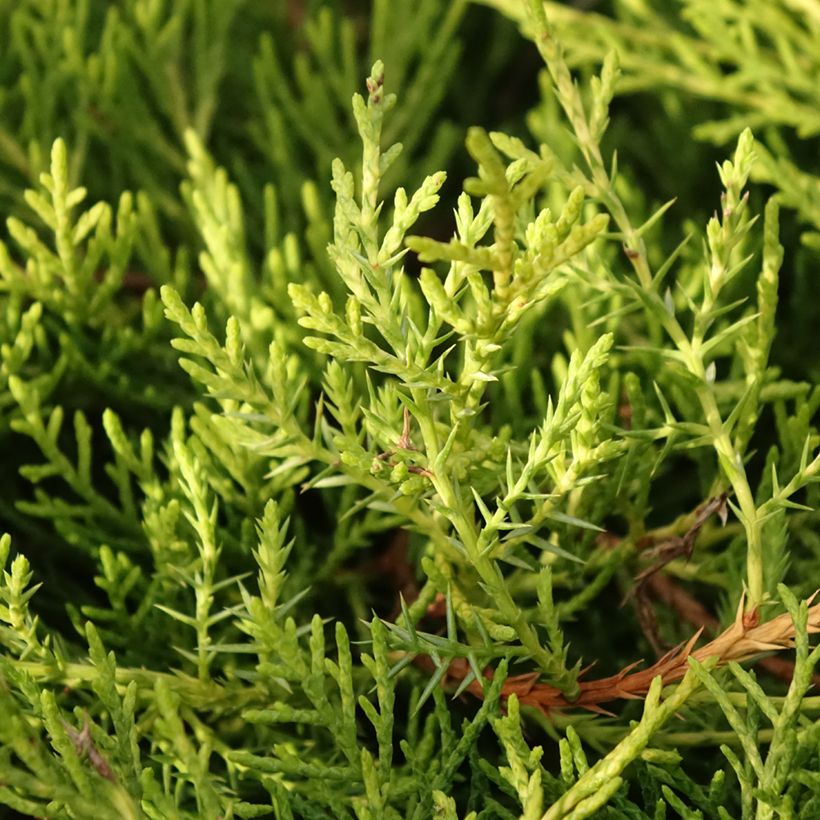

Plant habit
Foliage
Safety measures
Botanical data
Juniperus
x pfitzeriana
Golden Saucer
Cupressaceae
Pfitzer Juniper, Chinese juniper
Cultivar or hybrid
atteinterespiratoire
Cette plante peut entraîner des symptômes allergiques.
Evitez de la planter si vous ou vos proches souffrez de rhinite saisonnière ("rhume des foins").
Davantage d'informations sur https://plantes-risque.info
Other Juniperus - Juniper
Planting and care
Juniperus 'Golden Saucer' can be planted from September to November and from February to June in well-drained, light, even chalky poor soil. A rocky or sandy and dry soil does not bother it. Choose a very sunny or semi-shaded spot which is sheltered from prevailing winds. Soak the root balls well before planting. Add an organic compost when planting and water generously for the first years. Add a special conifer fertilizer in April, and hoe the soil around it in summer. This very hardy conifer dislikes heavy clay or water-logged soil in winter. Pruning is not necessary but this conifer can be pruned to maintain a beautiful habit, contain its dimensions or form a hedge or a bonsai. The old wood, devoid of needles, rarely shoots again. Prune from June to September.
Planting period
Intended location
Care
This item has not been reviewed yet - be the first to leave a review about it.
Evergreen shrubs
Haven't found what you were looking for?
Hardiness is the lowest winter temperature a plant can endure without suffering serious damage or even dying. However, hardiness is affected by location (a sheltered area, such as a patio), protection (winter cover) and soil type (hardiness is improved by well-drained soil).

Photo Sharing Terms & Conditions
In order to encourage gardeners to interact and share their experiences, Promesse de fleurs offers various media enabling content to be uploaded onto its Site - in particular via the ‘Photo sharing’ module.
The User agrees to refrain from:
- Posting any content that is illegal, prejudicial, insulting, racist, inciteful to hatred, revisionist, contrary to public decency, that infringes on privacy or on the privacy rights of third parties, in particular the publicity rights of persons and goods, intellectual property rights, or the right to privacy.
- Submitting content on behalf of a third party;
- Impersonate the identity of a third party and/or publish any personal information about a third party;
In general, the User undertakes to refrain from any unethical behaviour.
All Content (in particular text, comments, files, images, photos, videos, creative works, etc.), which may be subject to property or intellectual property rights, image or other private rights, shall remain the property of the User, subject to the limited rights granted by the terms of the licence granted by Promesse de fleurs as stated below. Users are at liberty to publish or not to publish such Content on the Site, notably via the ‘Photo Sharing’ facility, and accept that this Content shall be made public and freely accessible, notably on the Internet.
Users further acknowledge, undertake to have ,and guarantee that they hold all necessary rights and permissions to publish such material on the Site, in particular with regard to the legislation in force pertaining to any privacy, property, intellectual property, image, or contractual rights, or rights of any other nature. By publishing such Content on the Site, Users acknowledge accepting full liability as publishers of the Content within the meaning of the law, and grant Promesse de fleurs, free of charge, an inclusive, worldwide licence for the said Content for the entire duration of its publication, including all reproduction, representation, up/downloading, displaying, performing, transmission, and storage rights.
Users also grant permission for their name to be linked to the Content and accept that this link may not always be made available.
By engaging in posting material, Users consent to their Content becoming automatically accessible on the Internet, in particular on other sites and/or blogs and/or web pages of the Promesse de fleurs site, including in particular social pages and the Promesse de fleurs catalogue.
Users may secure the removal of entrusted content free of charge by issuing a simple request via our contact form.
The flowering period indicated on our website applies to countries and regions located in USDA zone 8 (France, the United Kingdom, Ireland, the Netherlands, etc.)
It will vary according to where you live:
- In zones 9 to 10 (Italy, Spain, Greece, etc.), flowering will occur about 2 to 4 weeks earlier.
- In zones 6 to 7 (Germany, Poland, Slovenia, and lower mountainous regions), flowering will be delayed by 2 to 3 weeks.
- In zone 5 (Central Europe, Scandinavia), blooming will be delayed by 3 to 5 weeks.
In temperate climates, pruning of spring-flowering shrubs (forsythia, spireas, etc.) should be done just after flowering.
Pruning of summer-flowering shrubs (Indian Lilac, Perovskia, etc.) can be done in winter or spring.
In cold regions as well as with frost-sensitive plants, avoid pruning too early when severe frosts may still occur.
The planting period indicated on our website applies to countries and regions located in USDA zone 8 (France, United Kingdom, Ireland, Netherlands).
It will vary according to where you live:
- In Mediterranean zones (Marseille, Madrid, Milan, etc.), autumn and winter are the best planting periods.
- In continental zones (Strasbourg, Munich, Vienna, etc.), delay planting by 2 to 3 weeks in spring and bring it forward by 2 to 4 weeks in autumn.
- In mountainous regions (the Alps, Pyrenees, Carpathians, etc.), it is best to plant in late spring (May-June) or late summer (August-September).
The harvesting period indicated on our website applies to countries and regions in USDA zone 8 (France, England, Ireland, the Netherlands).
In colder areas (Scandinavia, Poland, Austria...) fruit and vegetable harvests are likely to be delayed by 3-4 weeks.
In warmer areas (Italy, Spain, Greece, etc.), harvesting will probably take place earlier, depending on weather conditions.
The sowing periods indicated on our website apply to countries and regions within USDA Zone 8 (France, UK, Ireland, Netherlands).
In colder areas (Scandinavia, Poland, Austria...), delay any outdoor sowing by 3-4 weeks, or sow under glass.
In warmer climes (Italy, Spain, Greece, etc.), bring outdoor sowing forward by a few weeks.

































